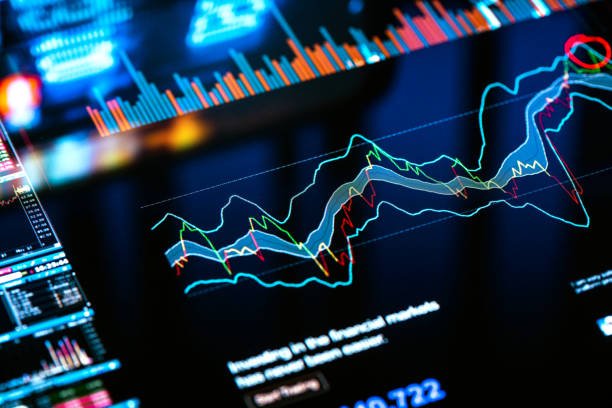In the fast-paced world of finance, digital exchanges have emerged as game-changers, transforming the way we buy, sell, and trade various assets. These innovative platforms have revolutionized the traditional methods of trading, offering investors and traders a seamless, efficient, and transparent experience.
Thank you for reading this post, don't forget to subscribe!As we delve into the realm of digital exchanges, it’s essential to understand their significance, their impact on the financial landscape, and the benefits they bring to the table.
What are Digital Exchanges?
Digital exchanges, also known as virtual trading platforms, are online marketplaces that facilitate the buying and selling of various assets, including cryptocurrencies, stocks, commodities, and more. These platforms leverage cutting-edge technology to streamline the trading process, providing users with real-time market data, advanced trading tools, and secure transaction mechanisms.
Features of Digital Exchanges:
- 24/7 Accessibility
- Real-time market data
- Advanced trading tools and analytics
- Secure and transparent transactions
- Global reach and liquidity
The Rise of Digital Exchanges
The emergence of digital exchanges can be traced back to the advent of the internet and the subsequent growth of digital technologies. As the world became increasingly interconnected, the need for efficient and borderless trading platforms became evident. Traditional exchanges, bound by physical limitations and rigid structures, struggled to keep pace with the evolving demands of traders and investors.
Enter digital exchanges, which capitalized on the power of the internet and revolutionized the trading landscape. These platforms offered a seamless and user-friendly experience, breaking down geographical barriers and enabling investors from around the world to participate in various markets with unprecedented ease.
Advantages of Digital Exchanges
Increased Accessibility and Convenience Digital exchanges have democratized the trading process, making it accessible to a broader range of investors, regardless of their location or financial resources. With just an internet connection and a digital device, traders can access these platforms from anywhere in the world, enabling them to seize opportunities as they arise.
Enhanced Liquidity and Market Depth By connecting buyers and sellers from across the globe, digital exchanges have significantly increased market liquidity and depth. This improved liquidity translates into tighter bid-ask spreads, lower transaction costs, and more efficient price discovery mechanisms, benefiting both institutional and individual traders.
Advanced Trading Tools and Analytics Digital exchanges offer a wide array of advanced trading tools and analytical resources, empowering traders to make informed decisions. From real-time charts and technical indicators to advanced order types and algorithmic trading strategies, these features cater to traders of all skill levels and investment philosophies.
Transparency and Security One of the hallmarks of digital exchanges is their commitment to transparency and security. These platforms employ robust security measures, such as multi-factor authentication, cold storage wallets, and advanced encryption protocols, to safeguard user funds and personal information. Additionally, many digital exchanges provide detailed trade histories and order books, promoting transparency and fostering trust among market participants.
The Impact on Financial Markets
The rise of digital exchanges has had a profound impact on financial markets, reshaping the way we perceive and interact with various asset classes. From the explosive growth of the cryptocurrency market to the increased accessibility of traditional financial instruments, digital exchanges have catalyzed significant changes in the financial landscape.
Cryptocurrency and Digital Asset Trading Digital exchanges have played a pivotal role in the adoption and mainstream acceptance of cryptocurrencies and other digital assets. Platforms like Coinbase, Binance, and Kraken have facilitated the trading of these innovative assets, providing users with a secure and user-friendly environment to buy, sell, and exchange cryptocurrencies.
Traditional Asset Trading While digital exchanges initially gained popularity in the realm of cryptocurrencies, their influence has extended to traditional asset classes as well. Online trading platforms like Robinhood, E-Trade, and TD Ameritrade have democratized stock trading, making it accessible to a broader audience and challenging the dominance of traditional brick-and-mortar brokerages.
Regulatory Challenges and Future Outlook
As digital exchanges continue to gain traction, they face various regulatory challenges and scrutiny from governing bodies. While some countries have embraced and regulated these platforms, others have taken a more cautious approach, citing concerns over investor protection, market manipulation, and financial stability.
Regulatory bodies around the world are working to establish clear guidelines and frameworks to govern the operations of digital exchanges. These efforts aim to strike a balance between fostering innovation and ensuring the integrity and safety of financial markets.
Despite the regulatory challenges, the future of digital exchanges appears promising. As technology continues to evolve and the demand for efficient and accessible trading platforms grows, digital exchanges are well-positioned to adapt and innovate, further reshaping the financial landscape.
Points to Consider
- User Experience and Interface Design Digital exchanges must prioritize user experience and interface design to attract and retain traders. Intuitive platforms with clean layouts, robust search functionalities, and seamless navigation can significantly enhance the trading experience.
- Security and Risk Management Implementing robust security measures and effective risk management strategies is crucial for digital exchanges. Regular security audits, advanced encryption protocols, and strict anti-money laundering (AML), and know-your-customer (KYC) procedures can help mitigate risks and foster trust among users.
- Scalability and Performance As trading volumes and user bases grow, digital exchanges must ensure their platforms are scalable and capable of handling high traffic and transaction loads without compromising performance or reliability.
- Customer Support and Education Providing excellent customer support and educational resources is essential for digital exchanges. Well-trained support staff, comprehensive knowledge bases, and educational materials can help traders navigate the platform effectively and make informed trading decisions.
- Innovation and Adaptation Digital exchanges must remain agile and innovative, continuously adapting to emerging technologies, market trends, and regulatory developments. Embracing new technologies, such as blockchain, artificial intelligence, and machine learning, can help these platforms stay ahead of the curve and better serve their customers.
Comparison of Traditional and Digital Exchanges
| Feature | Traditional Exchanges | Digital Exchanges |
|---|---|---|
| Trading Hours | Limited to specific hours | 24/7 trading |
| Accessibility | Restricted by physical location | Global accessibility |
| Asset Classes | Limited to mainstream assets (stocks, bonds, etc.) | A diverse range of assets (cryptocurrencies, commodities, etc.) |
| Trading Tools | Basic tools and resources | Advanced trading tools, analytics, and algorithmic strategies |
| Transaction Costs | Higher transaction fees | Lower transaction costs |
| Transparency | Opaque order books and trade histories | Transparent order books and trade histories |
| Security | Established security protocols | Advanced security measures (cold storage, encryption, etc.) |
Frequently Asked Questions (FAQs)
What is the difference between a centralized and decentralized digital exchange?
Centralized digital exchanges are operated by a single entity that controls and manages the platform, while decentralized exchanges (DEXs) operate on a peer-to-peer network without a central authority, leveraging blockchain technology.
Are digital exchanges regulated?
The regulation of digital exchanges varies across jurisdictions. While some countries have established regulatory frameworks, others are still in the process of developing appropriate regulations. It is crucial to research and comply with the applicable laws and regulations in your region.
How secure are digital exchanges?
Digital exchanges employ various security measures, such as multi-factor authentication, cold storage wallets, and advanced encryption protocols, to safeguard user funds and personal information. However, it is essential to choose reputable and well-established exchanges with a proven track record of security and reliability.
What are the advantages of using digital exchanges for cryptocurrency trading?
Digital exchanges offer several advantages for cryptocurrency trading, including 24/7 accessibility, enhanced liquidity, advanced trading tools, and the ability to trade a wide range of digital assets. They also provide a secure and transparent environment for buying, selling, and exchanging cryptocurrencies.
Can I trade traditional assets like stocks and bonds on digital exchanges?
Yes, some digital exchanges have expanded their offerings to include traditional asset classes like stocks, bonds, and commodities, in addition to cryptocurrencies and other digital assets. However, the availability of these assets may vary across different platforms.
How do I choose the right digital exchange for my trading needs?
When choosing a digital exchange, consider factors such as the platform’s reputation, security measures, trading fees, asset offerings, liquidity, customer support, and regulatory compliance. Additionally, evaluate the platform’s user interface, trading tools, and educational resources to ensure they align with your trading style and preferences.
Can digital exchanges be hacked or compromised?
While digital exchanges implement robust security measures, no system is entirely immune to potential hacks or compromises. It is essential to exercise caution, use strong passwords, enable two-factor authentication, and only store funds on exchanges when necessary. Additionally, research the exchange’s security history and track record.
What are the potential risks associated with trading on digital exchanges?
Potential risks associated with trading on digital exchanges include market volatility, liquidity risks, cybersecurity threats, regulatory uncertainties, and the possibility of platform outages or technical issues. It is crucial to thoroughly understand and manage these risks through proper risk management strategies and diversification.
My Closing Thoughts
Digital exchanges have ushered in a new era of trading, revolutionizing the way we interact with various asset classes and financial markets. These innovative platforms have democratized access to trading, enhanced liquidity, and introduced advanced trading tools and analytical resources, empowering traders and investors like never before.










